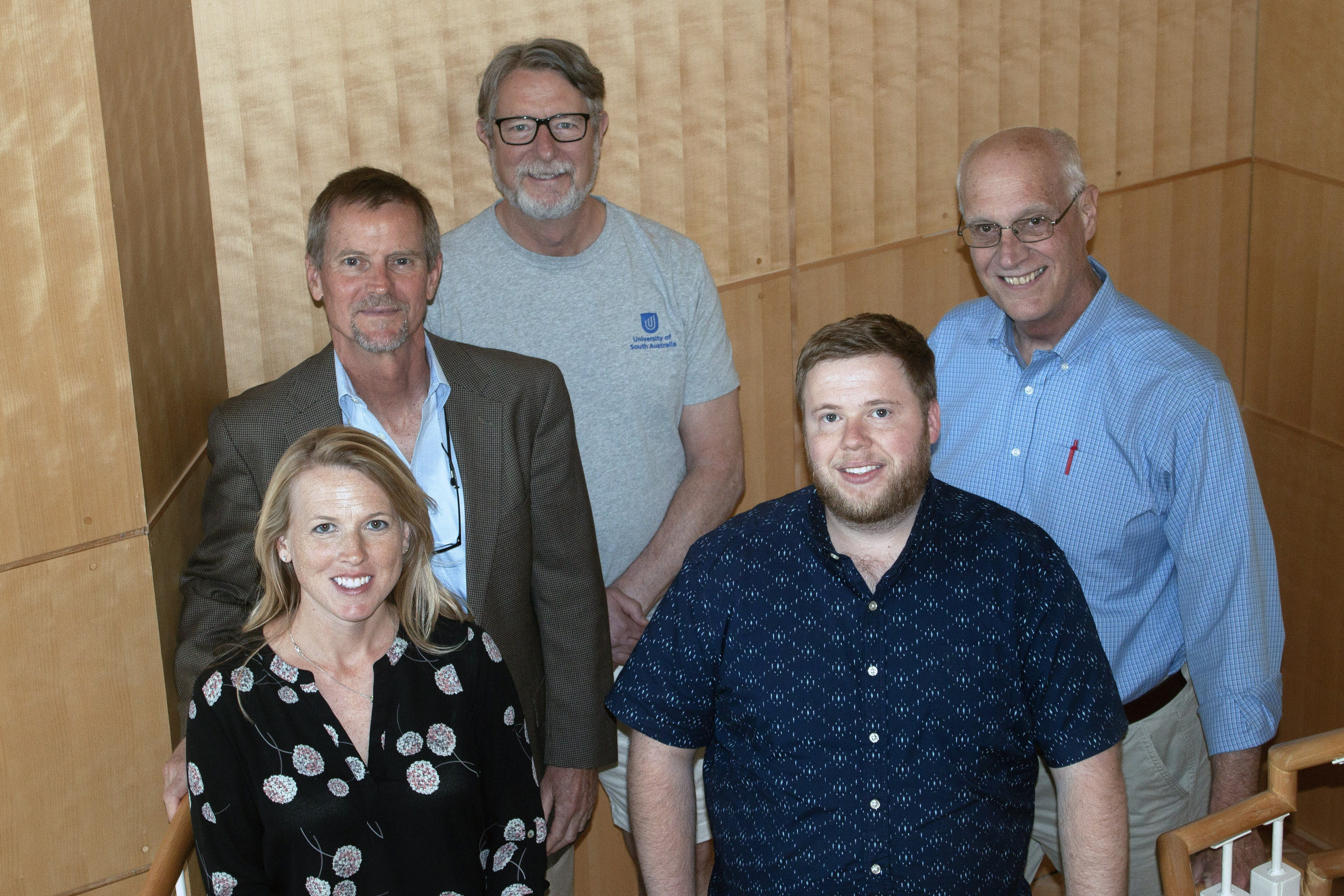Work is central to the lives of most Americans, and the environment of a workplace can have a major influence on people’s health and safety. Likewise, the wellbeing of employees impacts the success of a business. So, how can the workplace best support both employer and employee?
These are the kinds of questions the Workplace Health Group at the University of Georgia are trying to answer. Originally formed over 20 years ago, the group has tackled a range of workplace-based issues like obesity and chronic disease, workplace safety, and the cost effectiveness of employee health and safety initiatives.
Now, an article appearing in American Psychologist takes on the WHG as a case study, describing how the team’s experiences align with what science knows about building a successful multidisciplinary research group.
Based in UGA’s College of Public Health, the team is made up of faculty and graduate students who represent public health, psychology, management, sociology, human resources, nutrition, and kinesiology.
A diversity of expertise is necessary to impact workplace health, said WHG director and co-founder Mark Wilson.
“Different views and different expertise are the only way to tackle a complex web of issues that’s constantly changing,” he said.
In 1998, the health of employees and the health of a business were seen as separate issues, but Wilson and colleague David DeJoy wanted to show that the health of employees and organizations were interrelated.
In their first project, Wilson and DeJoy, who both come from the health promotion field, recruited Robert Vandenberg, a management professor in UGA’s Terry College of Business, for his background in organization research and statistics, and together they formalized the WHG as a multidisciplinary research group.
However, navigating who takes the lead designing and executing their research took a lot of trial and error, said Wilson.
“It took us a while to get comfortable working together, and there were times when we banged heads,” he said, but they quickly learned that challenging each other resulted in stronger projects.
“The key to their success is that they are able to defer to the individual with the expertise,” said lead author Nicholas Haynes, an industrial-organizational psychology doctoral student and research assistant in the WHG.
This can be tricky, said Haynes, because each team member arrives to the WHG with distinct ideas on how to conduct research.
“We’re all coming from these different trainings that all say, ‘this is the way you do science.’ I think a big part their early success was being able to set egos aside and let expertise win out.”
Wilson agrees. “We’re confident in our ability, but we don’t carry huge egos into the team,” he said, and each team member, from director to graduate student has a voice at the table.
Over time, the WHG has demonstrated that their methods work. The group has received over $13 million in funding from institutions like the National Institutes of Health and the Centers for Disease Control and Prevention. They have published over 60 papers and 14 book chapters, and their expertise has been sought after large companies like Home Depot, Union Pacific Railroad, and Dow Chemical.
WHG was ahead of the curve on adopting a multidisciplinary approach, said Haynes, and therefore the team didn’t have the benefit of reviewing team science literature before they started.
“It was more so a trial by fire,” said Haynes, and the paper offers snapshots of what the team has learned to help guide newly forming multidisciplinary teams. As a case study, WHG’s experience also serves to confirm and expand knowledge surrounding team science.
Though Wilson is particularly focused on public health and workplace health, he says many of the most critical issues we face today are complex problems that have a variety of factors that influence them, so learning how to do multidisciplinary work is critical.
“We could talk about a lot of different issues from the opioid crisis to climate change,” said Wilson. “The only way we’re going to tackle them is to have different teams in place with a diversity of perspectives that enable us to move forward.”
– Lauren Baggett
Posted on April 30, 2019.
Additional coverage in the May 2, 2019 ASPPH Friday Letter.







